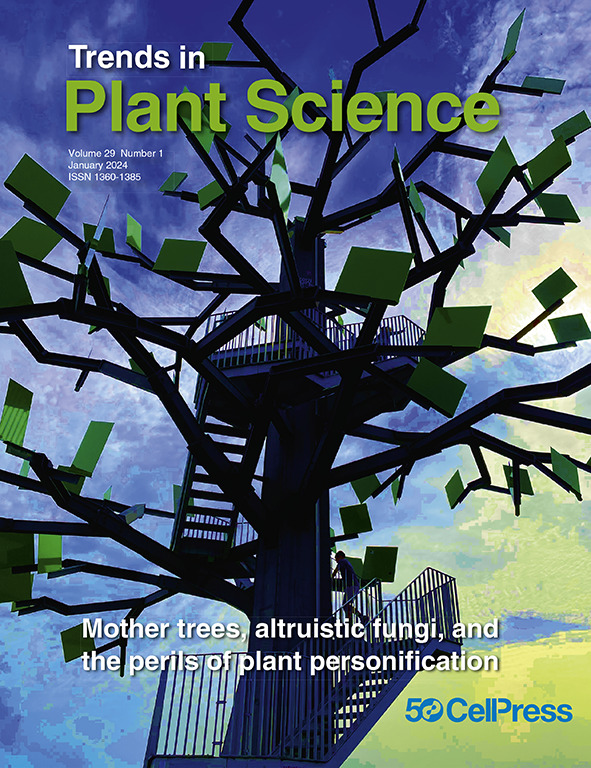硒杆菌:植物的无名朋友。
IF 17.3
1区 生物学
Q1 PLANT SCIENCES
引用次数: 0
摘要
过度使用农用化学品对生态系统构成持续威胁。Sun等人最近采用跨学科的方法发现,硒菌生物合成的硒纳米颗粒(SeNPs)通过趋化性和生物膜形成招募有益微生物,丰富了根际多样性。这种利用SeNPs操纵植物与微生物相互作用的能力为可持续农业提供了一种新的方法。本文章由计算机程序翻译,如有差异,请以英文原文为准。
Selenobacteria: the unsung friends of plants.
Excessive use of agrochemicals poses an ongoing threat to ecosystems. Using an interdisciplinary approach, Sun et al. recently revealed that selenium nanoparticles (SeNPs) biosynthesized by selenobacteria recruit beneficial microbes via chemotaxis and biofilm formation, enriching rhizosphere diversity. This ability to manipulate plant-microbe interactions using SeNPs offers a novel approach for sustainable agriculture.
求助全文
通过发布文献求助,成功后即可免费获取论文全文。
去求助
来源期刊

Trends in Plant Science
生物-植物科学
CiteScore
31.30
自引率
2.00%
发文量
196
审稿时长
6-12 weeks
期刊介绍:
Trends in Plant Science is the primary monthly review journal in plant science, encompassing a wide range from molecular biology to ecology. It offers concise and accessible reviews and opinions on fundamental plant science topics, providing quick insights into current thinking and developments in plant biology. Geared towards researchers, students, and teachers, the articles are authoritative, authored by both established leaders in the field and emerging talents.
 求助内容:
求助内容: 应助结果提醒方式:
应助结果提醒方式:


